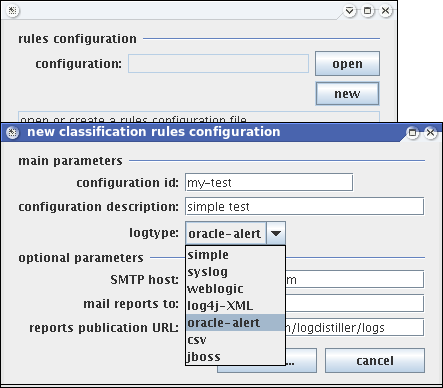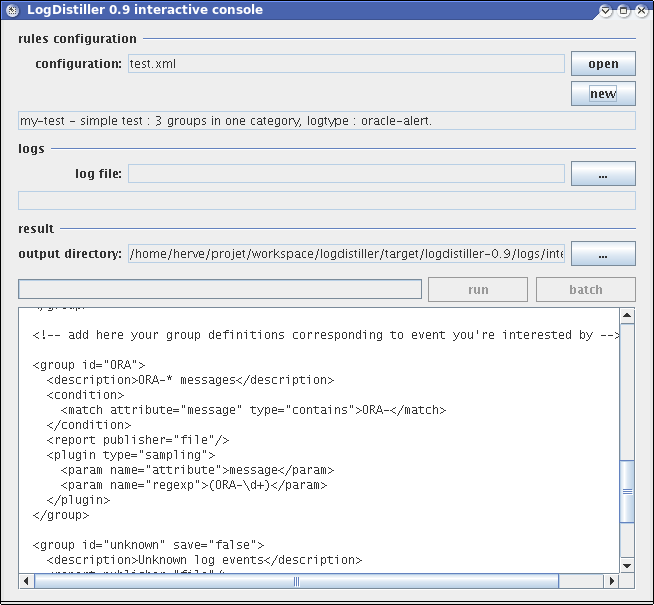Click on the "new" button:

The most important field is the logtype: it must correspond to your log. Other fields can safely be ignored for a simple test: they are useful only for more intensive use.
Save the generated classification rules file:

If you don't find your log type in the list, you can use the most basic one - simple - which interprets each line as a log event with a single text attribute. The generated classification rules file won't contain any useful rule, since there is no structure implied by this log type. To get a useful report, you'll have to write your rules: see the (advanced) step 4.
More advanced users can also write a custom log parser: see the (advanced) step 6. It's harder, but the result will better match the structure of your specific logs.
If the log parser you need is for a publicly available tool, I'll be happy to develop and add it to the base log parsers included in LogDistiller distribution. You just need to fill a feature request and give me some sample logs to work on.